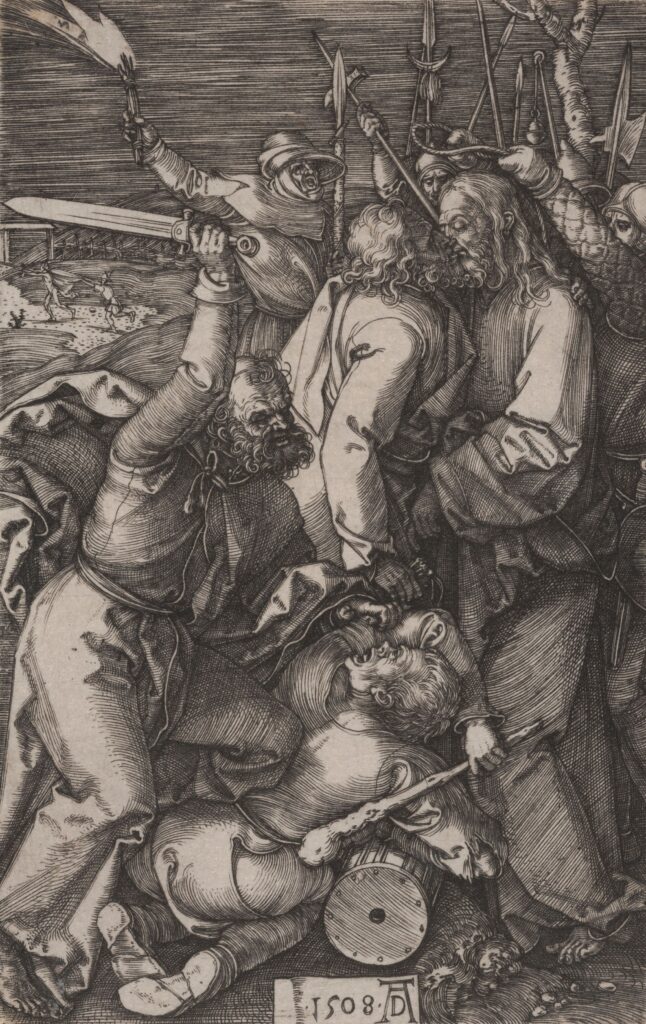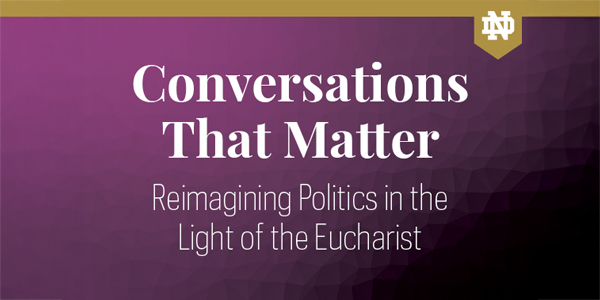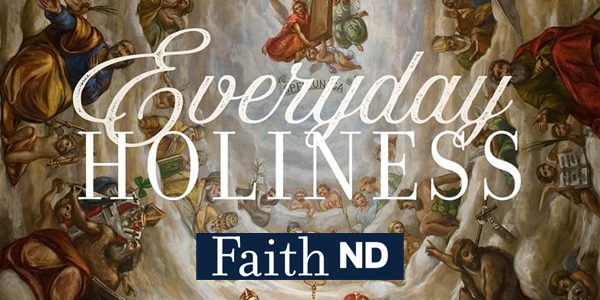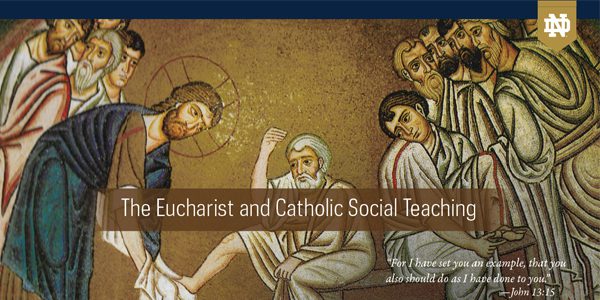Betrayal
Kelly Courington, academic advancement director for the College of Engineering and a Theology Master’s student Notre Dame, explores a small print created by Albrecht Durer, who was known for his technical prowess and imagination.
The Betrayal of Christ by Judas is an intaglio print, a very precise form of printmaking that allowed Durer to create the illusion of three-dimensional space on a flat surface. These small prints of various scenes from Christ’s passion were used as objects for private prayer and contemplation. It truly revolutionized the popular piety practices of the 16th century.
This print is a turbulent scene of betrayal. In the left foreground, St. Peter has his sword raised, striking down a man who holds a club. We can see the rage in Peter’s face. At the right, the figure of Christ accepts the kiss of Judas as a soldier behind slips a rope over his head. Many other figures can be seen with spears, and there are two fleeing disciples in the distant landscape at the left.
Everyone is on top of each other, pushing and shoving. We can imagine the screams of anger and fear clashing with the orders given by the commanding officers. And that kiss. How could such a quiet, gentle act of love be twisted into a sign of ultimate betrayal?
Where do we see ourselves in this scene? Likely, we have been on many sides of a betrayal, sometimes the one being harmed, sometimes an innocent bystander, and sometimes the betrayer. It is especially an unsettling thought to compare ourselves to Judas. But there are indeed times when we have made outward signs of love and devotion to our Lord while not being able to fully commit to his will in our hearts.
Especially this week, the Church asks us to contemplate the darkest of our human emotions and actions—fear, pride, hatred, betrayal, denial, isolation, and despair. We witness Jesus shoulder the burden of our sinfulness and offer us love in return. Let us give thanks for the wonder of this gift and recommit ourselves to following him.
This Lent, ThinkND invites you to join FaithND and the Raclin Murphy Museum of Art for a journey of Lenten discovery through some of the most significant liturgical paintings in the Raclin Murphy collection, challenging you to contemplate prayer, fasting, sinfulness, mercy, grace, and God’s infinite love from the perspectives of the artist’s gaze. To subscribe to the FaithND Daily Gospel Reflection visit faith.nd.edu/signup.

For closer viewing of this work through the digital collections of the Raclin Murphy Museum of Art, please click here.
More Like This
Related PostsLet your curiosity roam! If you enjoyed the insights here, we think you might enjoy discovering the following publications.



